Cricket news 2022: Aaron Finch’s ODI replacement emerges ahead ODI World Cup
As a humbled Australia turns its attention to the 50-over World Cup in India, a frontrunner to replace Aaron Finch at the top of the order has emerged.
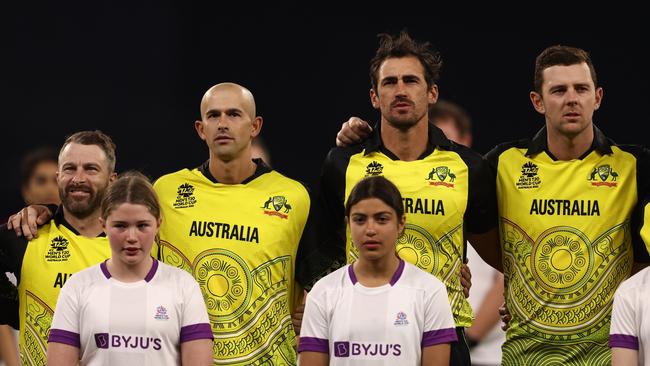
Travis Head is set to be the first beneficiary of life after Aaron Finch, as a humbled Australia sets its sights on next year’s 50-over World Cup.
Selectors will on Tuesday announce the ODI squad to take on England in a three-match series to follow the World Cup final, and Australia’s early exit from the Twenty20 World Cup has seen plans shelved for any players to be rested.
Australia is expected to unveil a full strength squad with new captain Pat Cummins at the helm, and the series shapes as an important first step in ensuring plans for the ODI World Cup in 12 months’ time will be more solid than the ones drawn up for the failed Twenty20 campaign.
The fast bowling power base of Cummins, Josh Hazlewood and Mitchell Starc will continue to lead the charge for Australia in white ball cricket, despite suggestions they might ultimately follow England’s Stuart Broad and James Anderson into becoming Test specialists.
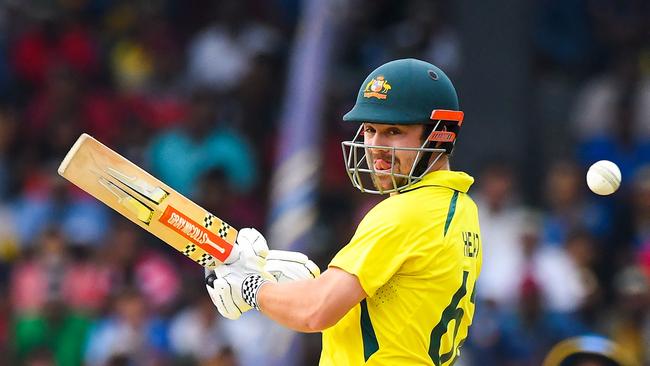
As well as the start of the ODI World Cup journey, the England series will double as a chance for Test stars to get in rhythm for the Test summer, with bowlers to build up their loads and perhaps Marnus Labuschagne getting a shot at tying down a more regular place in the batting line-up.
Dashing left-hander Head looks set to be given first crack as David Warner’s new opening partner.
“I think Travis Head will get some opportunities with the retirement of Aaron Finch,” said Australian coach, Andrew McDonald.
“We’re excited to see what he can do in one-day cricket.
“We saw how he went in Pakistan against a world-class attack, he was able to take them on and his one-day domestic record is second to none.
“He’s got big hundreds, and double hundreds.”
Steve Smith was Australia’s best player in the recent 50-over series against New Zealand and Zimbabwe, so the fact he was on the outer in the T20s won’t be a factor in the longer white ball format.
Cameron Green emerged as a cornerstone of Australia’s plans for next year’s World Cup in India, particularly because his presence as an all-rounder capable of bowling 10 overs could give Cummins’ the flexibility of picking two spinners for sub-continental conditions.
That means the squeeze could be on for Starc and Hazlewood, who could well be left fighting for one spot in India next year given Cummins’ selection as captain is guaranteed.
Australia will be keen for Mitchell Marsh to kick on in 50-over cricket like he had in the T20s last year, but there may be only room for one of he or Marcus Stoinis in the best XI.
Stoinis struggled in the recent ODI matches, but was the best of a beaten bunch for Australia in the T20 World Cup.
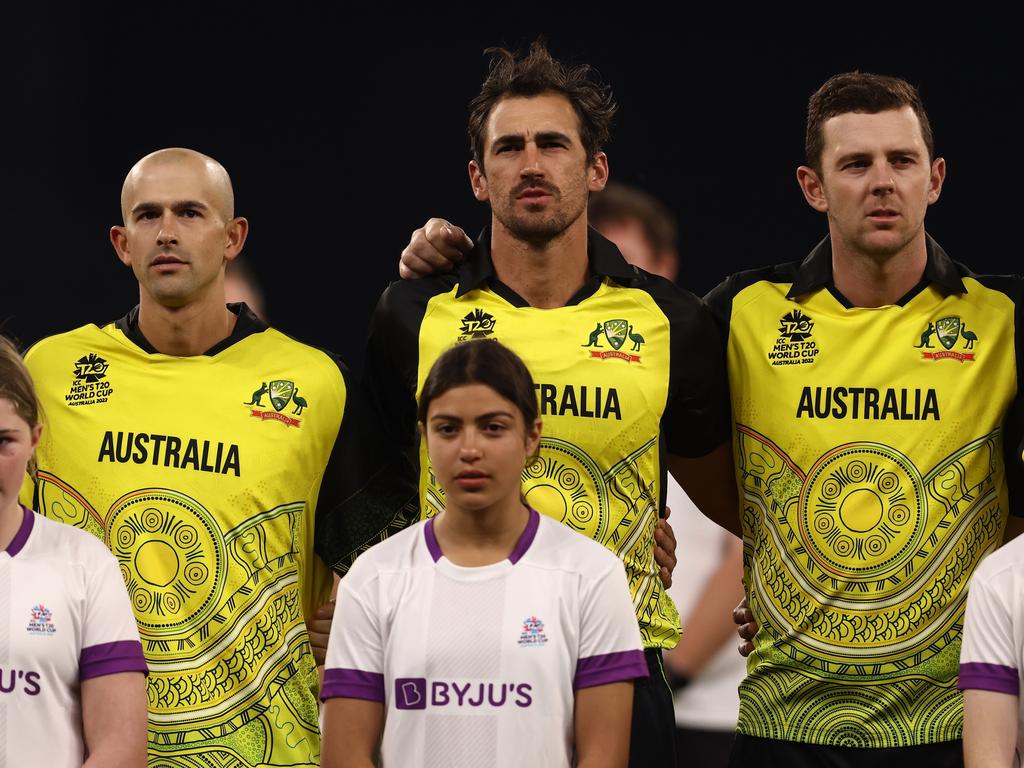
Glenn Maxwell will be key for Australia in Indian conditions with his ability to play and bowl spin overs, although the recent view has been he should bat as low as No.7 in the order, with wicketkeeper Alex Carey to bat ahead of him at No.6.
Josh Inglis and Labuschagne shape as the other batting candidates, but with the Tests coming up, perhaps the Queenslander may be favoured – depending on how Australia structures up with its all-rounders.
Bowling all-rounder Sean Abbott has proven himself an x-factor in the matches he’s played, and is expected to be part of Australia’s 50-over World Cup plans.
NEW ERA NEEDED FOR AUS AFTER HUMILIATION
Pressure is mounting on Australia to pick more T20 specialists and even re-examine the merits of a focused white ball coach as it sifts through the debris of a humiliating World Cup exit.
Australian coach Andrew McDonald has flagged an era of change, with no Twenty20 internationals scheduled until August and veterans including Aaron Finch and Matthew Wade almost certain to have played their last games.
There were calls this time last year for an urgent summit into Australia’s failings in white ball cricket, only for them to be blown out of the water as comically premature when Finch’s team resurrected themselves midway through the 2021 World Cup in Dubai to lift the trophy in stunning fashion.
However, the meekness of Australia’s Cup defence 12 months later has once again shone a spotlight on whether Australia has indeed been left behind in the modern world of T20 cricket.
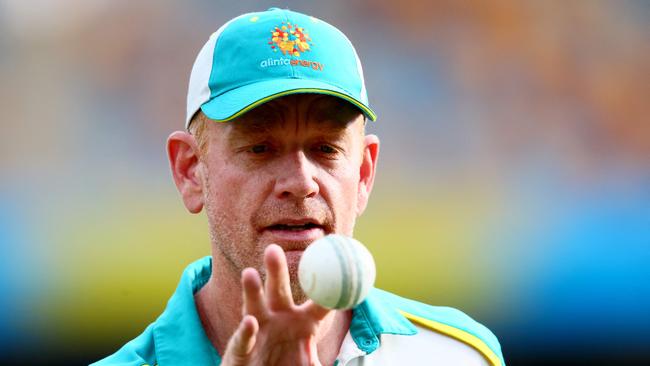
England has for years now taken a completely different approach by picking an XI of largely T20 specialists and appointing a coach in Aussie Matthew Mott who is free of Test cricket pressures and solely focused on winning white ball World Cups.
Australia’s T20 strategy is built largely on picking a nucleus of the country’s best out-and-out cricketers – regardless of format – and one coach in McDonald to oversee Test matches, ODIs and T20s.
The bizarre axing of Mitchell Starc for the final game of the World Cup suggests Australia might be suddenly questioning its method, while Glenn Maxwell’s blasé comments about all cricket series and tournaments now blending into each other has raised the questions about whether a specialist white ball coach might be needed to snap players out of a drifting mindset.
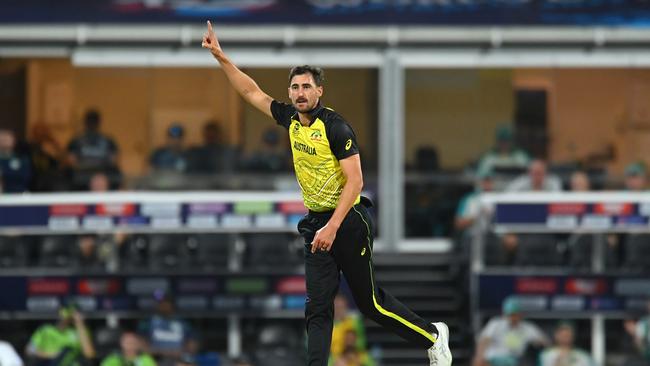
Australia will name a full-strength ODI side on Tuesday to face England in a three-match series to follow the World Cup final, with Travis Head set to assume Finch’s spot as opener.
McDonald insisted the non-stop schedule did not take away from World Cup defeat being a rare kind of pain, but conceded changes to personnel and strategy were inevitable.
“If you want to use the term hurt, they’re bitterly disappointed that they don’t have an opportunity to defend the World Cup and get through to the semi-finals,” said McDonald.
“Different people will show different emotions on the back of failure and this is a failed campaign.
“Glenn might move on faster than others, but we’re not going to judge our players on how they move on.
“The short turnaround (from last year’s World Cup to this one) lent itself to a similar squad … we felt that was the right play leading into the tournament. As I sit here right now, I still think it was the right play. But we’ll go through what that looks like in terms of building towards the next World Cup in 2024 – there will be some natural turnover because of the gap and space and also the age profile of our team.”
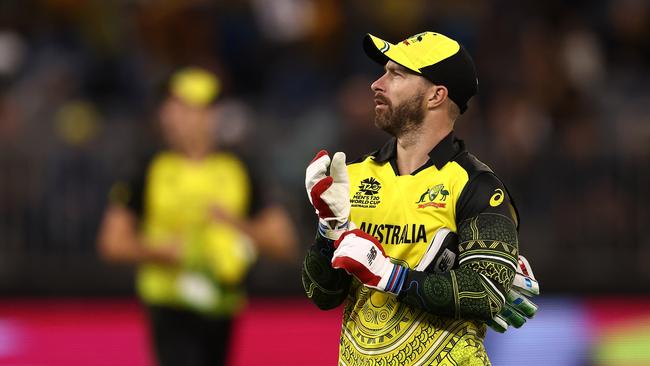
David Warner is 36 and fit enough to help lead Australia to the next T20 World Cup in 2024 and is arguably still its most important player.
Marcus Stoinis was under pressure heading into this World Cup, but was probably the only Australian who stood up.
However, pressure will come on Australia’s all-star bowling attack of Starc, Pat Cummins and Josh Hazlewood being able to stay together through to the next World Cup.
Other countries like England prefer to specialise across formats – with the unique T20 gun Sam Curran a classic example of a player a million miles away from Test level, but a consistent matchwinner in the shortest format with perfectly honed skills to succeed.
Australia will have to be increasingly aware that their three big quicks will all be in their 30s by the time the next World Cup rolls around and T20 specialists like Nathan Ellis have to be part of the new era.
“For this World Cup we felt those three bowlers Mitch Starc, Pat Cummins and Josh Hazlewood were best suited to be part of the squad to navigate through the World Cup,” said McDonald.
“I think it’ll just be a case-by-case. We saw Nathan Ellis brought us some depth, he was really impressive in the lead in. Kane Richardson was impressive in his own right.
“Riley Meredith is another one who has been exposed a couple of years back.
“I feel as though we’re building some depth to that bowling department.”
3 THINGS THAT MATTERED IN AUSTRALIA’S WORLD CUP HUMILIATION
1. SOFT ATTITUDE
Aaron Finch’s form cast a long and draining shadow over the Australian campaign, but in the end, attitude was a far bigger factor than selections in this forgettable exit.
In the lead-up, as Australia waded through a never-ending procession of warm-up matches, the rhetoric coming out of the camp appeared to almost be laying a groundwork of excuses rather than tackling the tournament with the kind of fearless confidence and swagger you would hope for from the defending champions and hosts.
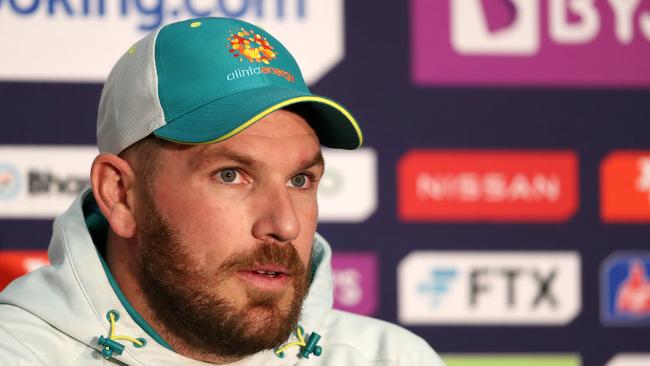
Australia’s pre-tournament chatter dwelled on fatigue and how the T20 format was a lottery where luck was needed … comments which suggested that winning last year’s World Cup in unexpected circumstances in Dubai may have softened the senses.
The Australian game plan seemed to be to essentially try and replicate what happened in last year’s World Cup. That is, don’t peak too early, build up gradually through the group stages and then fancy your chances that the big players will stand up on home soil when the pressure cooker of a semi-final arrives.
But the fact is Australia simply weren’t hungry enough to defend its title and were ambushed like lame ducks by New Zealand in the first match, from which they never recovered.
Failing to go back-to-back in the fickle T20 format is no crime, but the indictment on Australia was they seemed indifferent about the challenge in front of them and didn’t bring the bold, brave style of cricket that would have got the public behind them.
2. FINCH AND WORLD CUP LOYALTY
If you take all emotion out of it, then it’s hard to argue Finch’s international career shouldn’t have ended on the high of last year’s World Cup win in Dubai.
But the reality is selectors were trapped by timing.
It’s completely bizarre – even by T20 standards – to have a World Cup go up for grabs again 12 months after being won.
And on that count it’s understandable selectors would err more on the side of loyalty than ruthlessness, especially when Finch had been a great leader, had already been given a two-year deal by CA, and the World Cup defence was to take place on home soil.
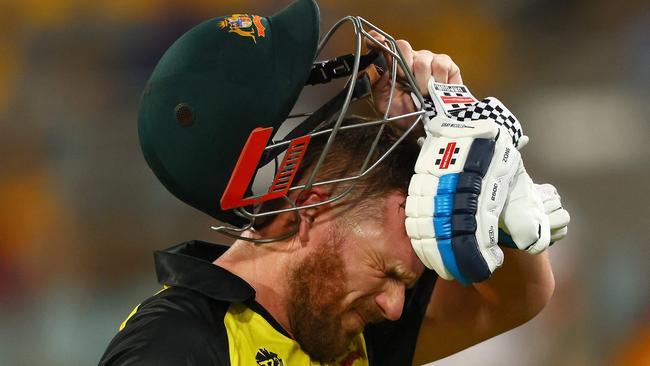
Finch’s form fell away so badly in the 50-over series against Zimbabwe and New Zealand that it made the skipper’s place in the T20 squad extremely tenuous, but by that point selectors had already been forced to select the 15-man World Cup squad, so it was too late to make a late adjustment.
In a normal two or four year window between World Cups, selectors would have had enough breathing room to give Finch the time he deserved to turn things around, or not, before making a call.
But in this artificial circumstance, they did not – and they don’t deserve to be stoned for gambling on loyalty and stability. (Although based on that policy, it was bizarre – and a sign of pressure and desperation – that Mitchell Starc was the one star axed for the final game of the tournament).
Finch won a man-of-the-match award and was not Australia’s worst player at the World Cup. Cameron Green or Steve Smith may not have improved the line-up either based on evidence from the warm-up games and their one match against Afghanistan.
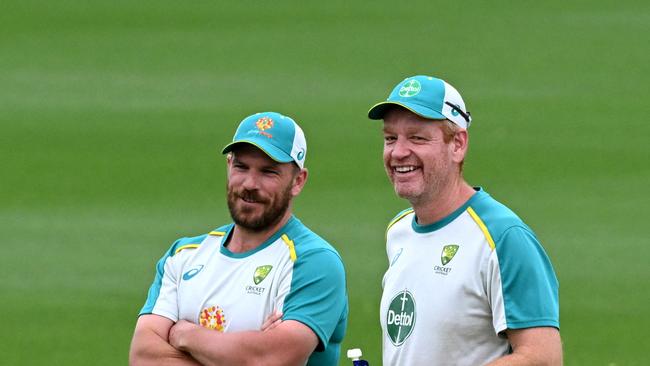
Australia should have been good enough to get to the semi-finals anyway, but it’s fair to speculate Finch’s wobbles might have contributed to an uneasy atmosphere around the team.
It was a sad end for Finch, who deserved better as a champion of the game and a great servant.
But his international retirement will help coach Andrew McDonald, who will no longer have to deal with the awkward perception of some that he might have been too close to Finch as his long-term best mate.
That’s harsh on McDonald, but perhaps one lesson Australia can take from this episode is the danger of giving multi-year contracts to cricketers approaching their twilight – because even subtly it can make it harder to make big calls when they suddenly need to be made.
3. STATS OVER SMARTS
Australia didn’t win every toss so it wasn’t a factor throughout the entire group stage, but Finch’s devotion to bowling first came under the microscope in a World Cup on home soil.
Had Australia batted first against New Zealand at the SCG and confidently bashed a score of 170 onto the board, then the flow of the tournament suggests the Black Caps would have struggled to mow it down – or at least would have had to take the game to the death.
But the decision to allow New Zealand to bat first, allowed the visitors to dictate terms in the power play and Australia never recovered.
Worse still was Australia’s inability to engage damage control midway through the collapse and focus on putting 140 on the board and batting out the 20 overs.
The meek surrender to be bowled out for 111 and lose by 89 runs killed Australia’s Net Run Rate and ultimately sealed their fate.
Then in the matches against Ireland and Afghanistan, Australia were guilty of missing the cues when they could have put their foot on the throat.
It will go down as the greatest Twenty20 World Cup of all time, yet Australia were mere spectators and as hosts didn’t really contribute to the vibe of a tournament which belonged to people power of the subcontinental teams.






To join the conversation, please log in. Don't have an account? Register
Join the conversation, you are commenting as Logout